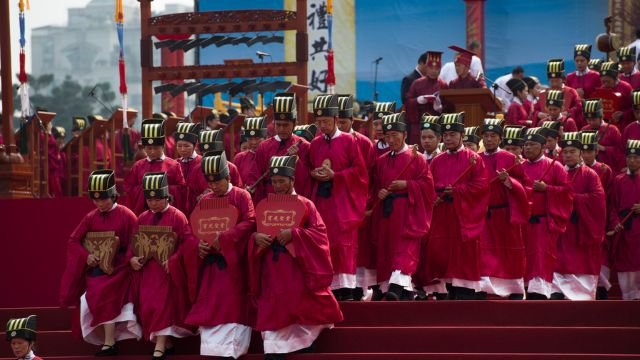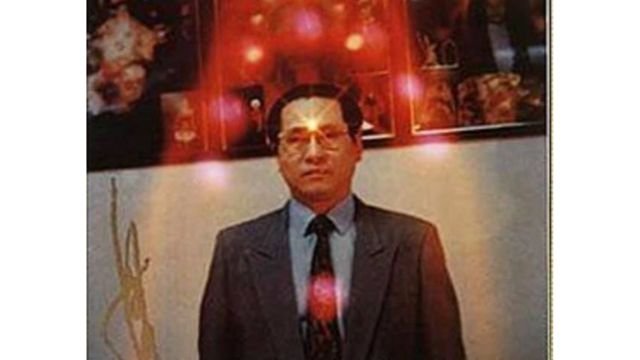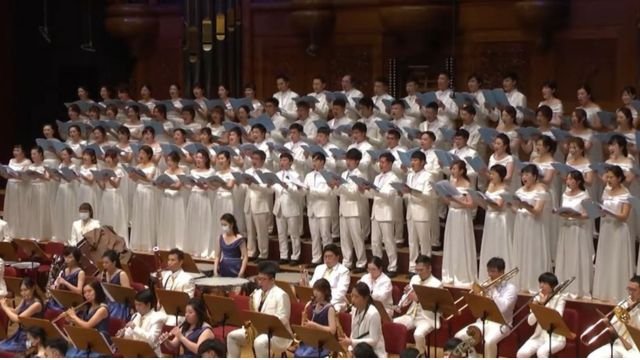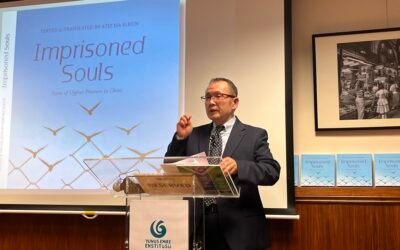While Yiguandao’s persecution ceased, other groups had problems in post-authoritarian Taiwan. In China, Yiguandao was never really free.
by Massimo Introvigne
Article 3 of 3. Read article 1 and article 2.

In China, hopes that Yiguandao can be somewhat recognized, fueled by the economic activities in the Mainland by Taiwanese businesspersons who were Yiguandao members, were typical of the pre-Xi-Jinping era. With Xi Jinping’s crackdown on all religions, those propagating Yiguandao in Mainland China were arrested. Moreover, the 1950s propaganda and bloody repression against Yiguandao became a model for the contemporary persecution of other groups labeled as xie jiao, such as Falun Gong and The Church of Almighty God.
The Martial Law period ended in Taiwan in 1987, not coincidentally the year Yiguandao obtained its legal status. However, transitions to democracy are never achieved in one day. Human rights and religious liberty problems continued for many years.
In 1996, Taiwanese voters were allowed to elect their President for the first time. Some leaders of religious movements interpreted democracy as allowing them to openly support presidential candidates who opposed the re-election of Kuomintang’s President Lee Teng-Hui (1923–2020). Among these candidates was Chen Li-An, a follower of Master Hsing Yun (1927–2023), the abbot of the influential Buddhist order Fo Guang Shan. The abbot, along with Master Wei Jue (1928–2016) of the Buddhist order Chung Tai Shan, actively endorsed Chen for presidency.
The Kuomintang candidate Lee was reelected, and his Justice Minister Liao Zheng-Hao (1946–2022) initiated a purge against unsupportive religious movements. Besides Fo Guang Shan and Chung Tai Shan, the crackdown included the Taiwan Zen Buddhist Association (later the Shakyamuni Buddhist Foundation), founded by Zen Master Wu Jue Miao-Tian, the Tai Ji Men school of qigong, self-cultivation, and martial arts, and the Sung Chi-Li Miracle Association, founded by Master Sung Chi-Li.
All these movements were accused of being anti-government, of “religious fraud,” and tax evasion, Media also claimed they had sinister magical practices, thus continuing the traditional rhetoric against the xie jiao. For example, Tai Ji Men was accused, falsely and somewhat ridiculously, of “raising goblins.”
Ultimately, extended legal battles resulted only in charges for administrative violations. Even Master Sung Chi-Li, initially sentenced to seven years in 1997 as a quintessential “evil cult” leader, had his conviction overturned by the Supreme Court in 2003. In Tai Ji Men’s case, all defendants were acquitted. Notwithstanding Tai Ji Men’s Supreme Court acquittal of 2007, however, tax harassment continued, generating problems that have not been solved to this very day. While the other situations have been solved or settled, the “Tai Ji Men Case” continues.

The reasons Yiguandao was persecuted during the Martial Law period and groups such as Tai Ji Men continued to be harassed in Taiwan’s post-authoritarian years are similar. They are also rooted in a very old Chinese idea, that religion should actively support the government and accept to become part of the government-controlled establishment or be eradicated as xie jiao. This idea was and is declined in different ways, and of course with different consequences for those who escaped government control, in the Chinese Empire, the People’s Republic of China, Nationalist China, and Taiwan. But the idea never went away. Tai Ji Men was also perceived as an excessively independent group, and repressed as such, at a time when the repression of most branches of Yiguandao ceased, as they had accepted to play the official political and electoral game.
As is true that a legal machinery hostile to freedom of religion or belief may continue to work after a formal transition to democracy, it is also the case that media maintain for years and even decades old attitudes and prejudices. False accusations against Tai Ji Men spread by a prosecutor who committed several violations of law were easily believed and spread through hundreds of articles. Recently, after the founder of the Korean Christian new religious movement Providence (Christian Gospel Mission) was sentenced twice in Korea for sexual abuse, Taiwanese media viciously attacked the local members of his church, which in some cases lost their jobs, despite the fact that none of them was accused of any crime. Leading scholars in Taiwan denounced this situation as evidence that, thirty-five years after the end of the Martial Law, Taiwanese media and society had still not reconciled themselves with the principles of freedom of religion or belief.

Remembering the case of Yiguandao and reflecting on more recent incidents, obviously very much different from each other, involving Tai Ji Men and other groups, does not deny the great progress Taiwan, unlike Mainland China, has made towards a full implementation of freedom of religion or belief. But it shows that, like everywhere else and even in democratic countries, religious liberty is always fragile, and problems remain to be solved to this very day.

Massimo Introvigne (born June 14, 1955 in Rome) is an Italian sociologist of religions. He is the founder and managing director of the Center for Studies on New Religions (CESNUR), an international network of scholars who study new religious movements. Introvigne is the author of some 70 books and more than 100 articles in the field of sociology of religion. He was the main author of the Enciclopedia delle religioni in Italia (Encyclopedia of Religions in Italy). He is a member of the editorial board for the Interdisciplinary Journal of Research on Religion and of the executive board of University of California Press’ Nova Religio. From January 5 to December 31, 2011, he has served as the “Representative on combating racism, xenophobia and discrimination, with a special focus on discrimination against Christians and members of other religions” of the Organization for Security and Co-operation in Europe (OSCE). From 2012 to 2015 he served as chairperson of the Observatory of Religious Liberty, instituted by the Italian Ministry of Foreign Affairs in order to monitor problems of religious liberty on a worldwide scale.



